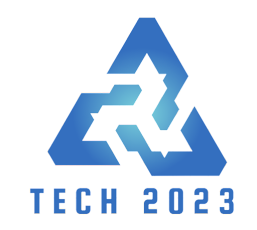We’ve all heard it: “AI is going to take over everything.” From news headlines to office lunch conversations, the rise of artificial intelligence has sparked a mix of curiosity, excitement, and fear.
But here’s the truth — while AI is definitely changing the job landscape, not all roles are in danger. Some will disappear, others will evolve, and many new ones will be born.
Let’s explore which jobs are at risk, which are safe (for now), and how you can stay ahead in this new era of work.
Jobs AI Will Likely Replace by 2030
AI thrives on patterns, rules, and repetition. If a task can be broken down into simple steps, a machine can probably perform it faster, more efficiently, and 24/7.
1. Data Entry Clerks
Copy-pasting data, updating records, and manual database work are already being automated. Tools like OCR, RPA, and AI assistants are replacing human input in these areas.
2. Customer Support (for Basic Tasks)
If your job involves answering the same questions over and over — “How do I reset my password?” — a chatbot can probably do that already.
3. Telemarketing
Robocalls and AI-powered voice systems are taking over cold-calling. They don’t get tired, don’t argue, and follow the script perfectly.
4. Retail Cashiers
Self-checkout machines, Amazon Go-style stores, and digital payment apps are making human cashiers less essential.
5. Simple Assembly Line Work
Robots in factories are not new, but with AI, they’re becoming smarter and more adaptable, taking over more complex tasks.
6. Fast Food Order Takers
Drive-thru bots, automated fryers, and robotic arms are already being tested in fast food chains. These systems cut costs and reduce errors.
Jobs AI Won’t Replace Anytime Soon
Despite the hype, AI can’t do everything. It still struggles with emotions, real-world unpredictability, and deep creativity.
1. Creative Professionals
Writers, filmmakers, designers, and artists: AI can help, but the soul and originality behind creative work are still uniquely human.
2. Skilled Tradespeople
Plumbers, electricians, mechanics — these jobs require hands-on problem-solving, experience, and often improvisation. AI isn’t crawling under your sink anytime soon.
3. Doctors, Nurses & Therapists
AI can help diagnose or suggest treatment plans, but it cannot build trust, offer emotional support, or comprehend complex emotional states.
4. Teachers and Educators
While AI tutors can assist, students still need motivation, feedback, and mentorship — all best provided by humans.
5. Mental Health Professionals
Empathy, listening, and nuanced conversation are key in therapy and counseling — things that even the most advanced AI can't replicate authentically.
6. Leaders and Entrepreneurs
Starting companies, leading teams, and making tough decisions — these roles demand emotional intelligence, ethics, and vision.
What Should You Do About It?
Let’s be real: AI isn’t going away. So instead of resisting it, learn to work with it.
Here’s how:
Upskill in areas AI can’t master: creativity, critical thinking, and emotional intelligence.
Learn AI tools relevant to your industry — be the person who knows how to use them, not the one replaced by them.
Stay curious — the world is changing fast, but those who adapt will thrive.
AI will replace some jobs, but it’s also creating new opportunities we couldn’t have imagined a decade ago.
This is not a time to panic. It’s a time to prepare, pivot, and push forward. The future belongs not to the machines, but to the people who understand how to work with them.
So instead of asking, “Will AI take my job?” — start asking, “How can I use AI to grow in my career?”
What do you think about AI and jobs in the future? Is your field safe, or are you seeing changes already?





